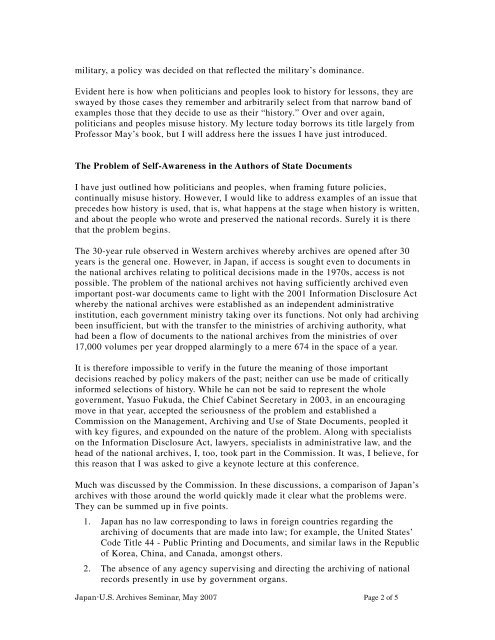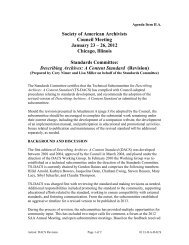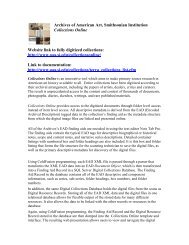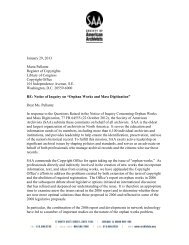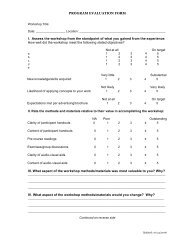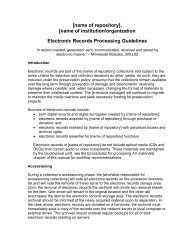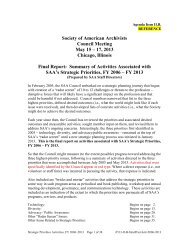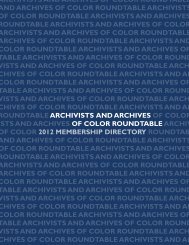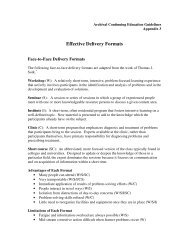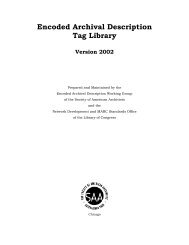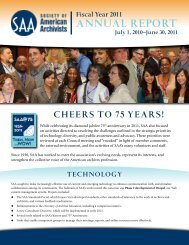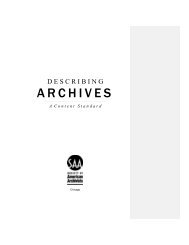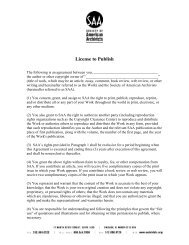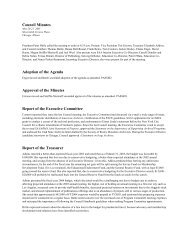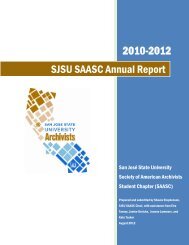The Use and Misuse of History in Modern Japanese History
The Use and Misuse of History in Modern Japanese History
The Use and Misuse of History in Modern Japanese History
You also want an ePaper? Increase the reach of your titles
YUMPU automatically turns print PDFs into web optimized ePapers that Google loves.
military, a policy was decided on that reflected the military’s dom<strong>in</strong>ance.<br />
Evident here is how when politicians <strong>and</strong> peoples look to history for lessons, they are<br />
swayed by those cases they remember <strong>and</strong> arbitrarily select from that narrow b<strong>and</strong> <strong>of</strong><br />
examples those that they decide to use as their “history.” Over <strong>and</strong> over aga<strong>in</strong>,<br />
politicians <strong>and</strong> peoples misuse history. My lecture today borrows its title largely from<br />
Pr<strong>of</strong>essor May’s book, but I will address here the issues I have just <strong>in</strong>troduced.<br />
<strong>The</strong> Problem <strong>of</strong> Self-Awareness <strong>in</strong> the Authors <strong>of</strong> State Documents<br />
I have just outl<strong>in</strong>ed how politicians <strong>and</strong> peoples, when fram<strong>in</strong>g future policies,<br />
cont<strong>in</strong>ually misuse history. However, I would like to address examples <strong>of</strong> an issue that<br />
precedes how history is used, that is, what happens at the stage when history is written,<br />
<strong>and</strong> about the people who wrote <strong>and</strong> preserved the national records. Surely it is there<br />
that the problem beg<strong>in</strong>s.<br />
<strong>The</strong> 30-year rule observed <strong>in</strong> Western archives whereby archives are opened after 30<br />
years is the general one. However, <strong>in</strong> Japan, if access is sought even to documents <strong>in</strong><br />
the national archives relat<strong>in</strong>g to political decisions made <strong>in</strong> the 1970s, access is not<br />
possible. <strong>The</strong> problem <strong>of</strong> the national archives not hav<strong>in</strong>g sufficiently archived even<br />
important post-war documents came to light with the 2001 Information Disclosure Act<br />
whereby the national archives were established as an <strong>in</strong>dependent adm<strong>in</strong>istrative<br />
<strong>in</strong>stitution, each government m<strong>in</strong>istry tak<strong>in</strong>g over its functions. Not only had archiv<strong>in</strong>g<br />
been <strong>in</strong>sufficient, but with the transfer to the m<strong>in</strong>istries <strong>of</strong> archiv<strong>in</strong>g authority, what<br />
had been a flow <strong>of</strong> documents to the national archives from the m<strong>in</strong>istries <strong>of</strong> over<br />
17,000 volumes per year dropped alarm<strong>in</strong>gly to a mere 674 <strong>in</strong> the space <strong>of</strong> a year.<br />
It is therefore impossible to verify <strong>in</strong> the future the mean<strong>in</strong>g <strong>of</strong> those important<br />
decisions reached by policy makers <strong>of</strong> the past; neither can use be made <strong>of</strong> critically<br />
<strong>in</strong>formed selections <strong>of</strong> history. While he can not be said to represent the whole<br />
government, Yasuo Fukuda, the Chief Cab<strong>in</strong>et Secretary <strong>in</strong> 2003, <strong>in</strong> an encourag<strong>in</strong>g<br />
move <strong>in</strong> that year, accepted the seriousness <strong>of</strong> the problem <strong>and</strong> established a<br />
Commission on the Management, Archiv<strong>in</strong>g <strong>and</strong> <strong>Use</strong> <strong>of</strong> State Documents, peopled it<br />
with key figures, <strong>and</strong> expounded on the nature <strong>of</strong> the problem. Along with specialists<br />
on the Information Disclosure Act, lawyers, specialists <strong>in</strong> adm<strong>in</strong>istrative law, <strong>and</strong> the<br />
head <strong>of</strong> the national archives, I, too, took part <strong>in</strong> the Commission. It was, I believe, for<br />
this reason that I was asked to give a keynote lecture at this conference.<br />
Much was discussed by the Commission. In these discussions, a comparison <strong>of</strong> Japan’s<br />
archives with those around the world quickly made it clear what the problems were.<br />
<strong>The</strong>y can be summed up <strong>in</strong> five po<strong>in</strong>ts.<br />
1. Japan has no law correspond<strong>in</strong>g to laws <strong>in</strong> foreign countries regard<strong>in</strong>g the<br />
archiv<strong>in</strong>g <strong>of</strong> documents that are made <strong>in</strong>to law; for example, the United States’<br />
Code Title 44 - Public Pr<strong>in</strong>t<strong>in</strong>g <strong>and</strong> Documents, <strong>and</strong> similar laws <strong>in</strong> the Republic<br />
<strong>of</strong> Korea, Ch<strong>in</strong>a, <strong>and</strong> Canada, amongst others.<br />
2. <strong>The</strong> absence <strong>of</strong> any agency supervis<strong>in</strong>g <strong>and</strong> direct<strong>in</strong>g the archiv<strong>in</strong>g <strong>of</strong> national<br />
records presently <strong>in</strong> use by government organs.<br />
Japan-U.S. Archives Sem<strong>in</strong>ar, May 2007 Page 2 <strong>of</strong> 5


